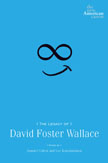An excellent question that I attempt to answer in my debut post as a blogger for the Huffington Post:
The New Yorker just released its first special issue devoted to science fiction, including contributions from genre giants like Ursula K. Le Guin and Ray Bradbury as well as rising "literary fiction" stars like Junot Díaz and Karen Russell. As writers at Wiredand io9 have noted, the issue marks a new level of mainstream interest in science fiction, giving a whole cadre of New-Yorker-obsessed "serious readers" license to take genre fiction, well, seriously. But what about science fiction in universities? In her contribution to the new issue, Ursula K. Le Guin argues that in the past "quite a few science-fiction writers accepted exile from the Republic of Letters to the ghetto of genre, perhaps because ghettos, like all gated communities, give the illusion of safety."
In fact, science fiction has been sneaking into all sorts of new neighborhoods. The U.K.-based New Scientist has launched Arc, "a new magazine about the future," while the venerable MITTechnology Review released a special issue of science fiction featuring Cory Doctorow, Joe Haldeman, and others. Ridley Scott's television series Prophets of Science Fiction explores the power of fiction to both advance and complicate our ideas about the future, and Stephen Hawking is hosting the Science Channel's Stephen Hawking's Sci-Fi Masters.
